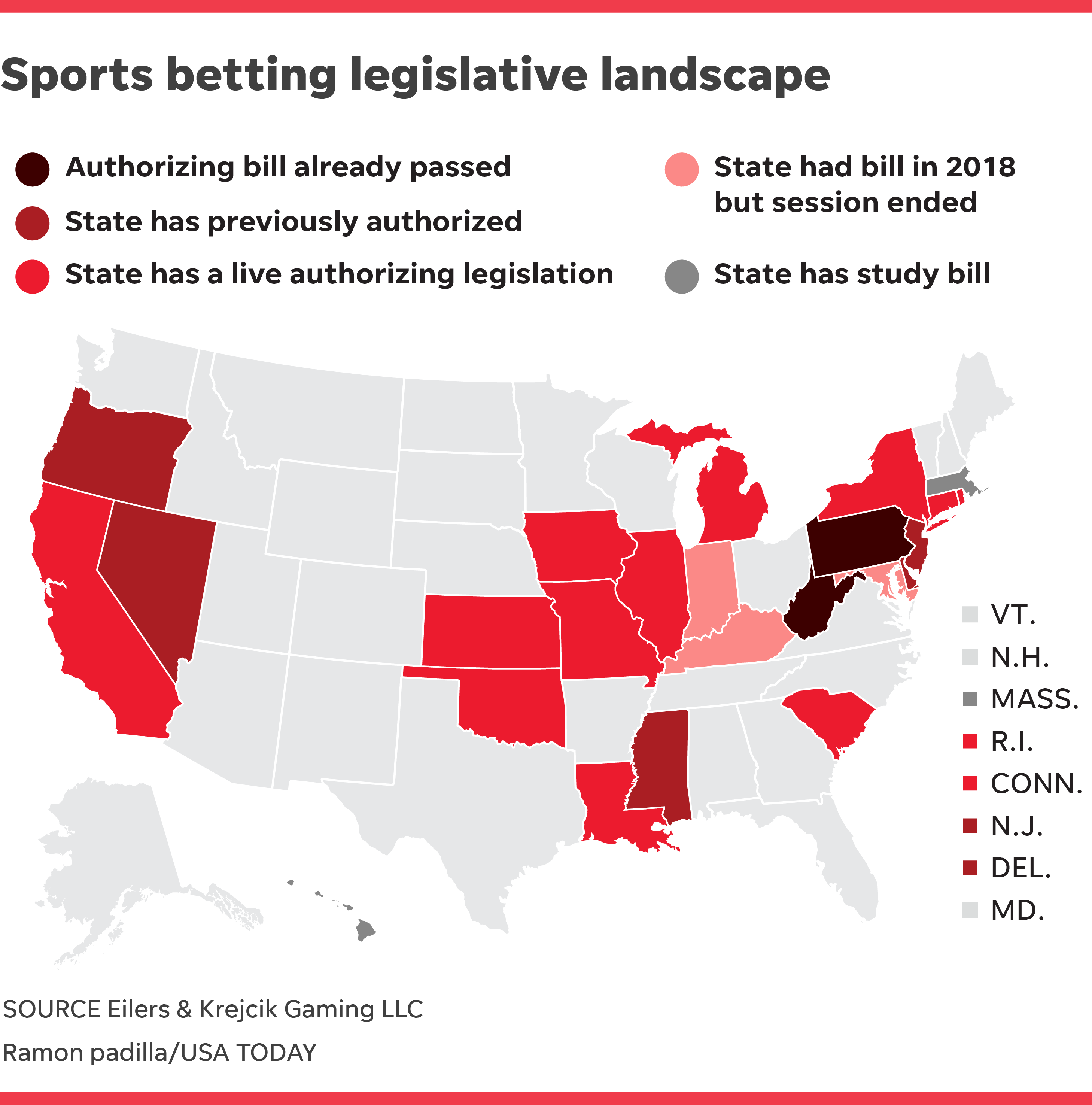AN IRISH teenage model is facing a police probe over revealing videos of her promoting illegal betting sites. Best sports bookies in South Africa with cool bonuses, wide range or markets and convenient deposit/withdrawal. Place your bets on the top sports betting sites.
➝ backIllegal Sports Betting
How Offshore Operators – and Those Who Support Them – Break U.S. Law
For decades, state-regulated brick and mortar sportsbooks in Nevada offered the only legal sports betting in the U.S. However, with the advent of the internet, illegal bookies have taken advantage of lax or even non-existent laws in places like Antigua, Costa Rica, Latvia, and Panama to set up online sportsbooks that target American customers. These sportsbooks are illegal in the United States and prey on unsuspecting Americans, despite claims of regulation and licensure in their home countries. In the wake of the Supreme Court decision in Murphy v. NCAA and nearly half of the states legalizing sports betting, these unscrupulous operators continue to take advantage of the unsuspecting public.
Sports betting, like all other forms of gambling, is highly regulated at the state level. Each state in the country can decide if and to what extent it will permit gambling. Since the decision in Murphy v. NCAA, 22 states plus the District of Columbia have legalized sports betting. Each of these states have established rigorous licensing regimes to ensure game integrity and consumer safety. Sportsbooks and bookies that offer sports betting outside of these licensing regimes – whether in person or online – are illegal.

Federal law makes it a crime to participate in the business of illegal gambling. There are a variety of statutes that make it illegal to operate or participate in financial transactions related to an unlicensed sportsbook in the United States, including the Wire Act, the Illegal Gambling Business Act, the Travel Act, and the Unlawful Internet Gambling Enforcement Act.[i] Beyond federal statutes aimed specifically at gambling, a variety of broader criminal laws targeting organized crime have also been the basis for prosecution of offshore gambling rings.[ii]
The threat of federal prosecution is not hypothetical. Prosecutors have been successfully pursuing cases against offshore operators for two decades. The first ever prosecution of an offshore book came in 2000 against Jay Cohen, founder of the Antigua-based World Sports Exchange. A jury found Cohen guilty of several violations of the Wire Act, for which he was sentenced to two years in jail.[iii] In another case, the federal government charged 57 individuals with operating an illegal gambling business, racketeering, and money laundering in connection with their Panama-based sportsbook.[iv] The trials continued for many years, resulting in convictions, fines, and other sanctions.
Another high-profile case from the Southern District of New York illustrates the far-reaching impacts of illegal sports betting. In 2016, the U.S. Attorney charged and prosecuted 46 leaders of several organized crime families with everything from assault, extortion, and gun trafficking, to loansharking and illegal gambling.[v] The sports betting charges stemmed from the defendants’ use of online, illegal sportsbooks based in the United States and abroad to enrich the crime families.
Federal prosecution is not limited to the operators themselves. The Department of Justice has warned that media outlets that accept advertising dollars from these illegal operators could be liable for aiding and abetting criminal activity.[vi] Microsoft, Google, and Yahoo entered into a $31.5 million settlement with the federal government in relation to their promotion of illegal, offshore gambling in 2009.[vii] The Sporting News, one of the oldest sporting outlets in the country, entered into a $7.2 million settlement with the Department of Justice to resolve accusations stemming from accepting advertising from offshore gaming outlets.[viii] Even short of criminal prosecution, media outlets may be subject to seizure of funds or subpoenas as part of related prosecutions or investigations.
While federal law is abundantly clear on the illegality of such operations, these books and even the media, often claim it is not illegal for the consumer to use offshore sites. While it is true that no federal law targets bettors using offshore books, many states have laws that make using these books illegal. Many of the 28 states with no legalized sports betting expressly make it illegal for consumers to wager on sports in any form, including via offshore operations.[ix] And several states that have legalized sports betting specify that consumers should only engage in such activity through a legal, regulated sportsbook. For example, it is illegal in Nevada and Michigan to place a wager with a sportsbook that is not authorized to operate in the state.[x] It is also, of course, illegal for a sportsbook to operate without proper licensure and regulatory oversight in any state with legalized sports betting.
Beyond being illegal, these offshore operations also fail to provide any meaningful consumer protection. While legal, regulated sportsbooks uphold key principles of responsible gaming, protection of consumer funds, data privacy, and more, offshore books do nothing to protect their patrons. In fact, should a consumer find themselves at odds with their offshore bookie (not being able to withdraw their funds or disagreeing with how a bet was settled, for example), there is no one the consumer can turn to for help. Further, should the federal government initiate a proceeding against any of these offshore books, customers might lose their money on deposit with the book with little to no recourse. These illegal operators also avoid contributing state and local taxes to U.S. communities.
Offshore sportsbooks violate federal and state laws in targeting U.S.-based consumers. Worse yet, they take advantage of confusion and uncertainty to entice consumers to use their illegal sites. For many consumers, they only realize the dangers in using these sites when it is too late – when they have a complaint or a problem, but no recourse to resolve it. Only when all sectors of the sports betting ecosystem work together – the operators, the suppliers, the media, the regulators – can we ensure customers can easily find and use safe, legal, and regulated sports betting sites.

Citations
[i] The Wire Act, 18 U.S.C. § 1084; Illegal Gambling Business Act, 18 U.S.C. § 1955; Travel Act, 18 U.S.C. § 1952, Unlawful Internet Gambling Enforcement Act, 31 U.S.C. §§ 5361–5366.
[ii]E.g. Racketeer Influenced and Corrupt Organizations (RICO), 18 U.S.C. §§ 1961–1968 and 18 U.S.C. §§ 1956, 1957 (relating to money laundering).
[iii]United States v. Cohen, 260 F.3d 68 (2d Cir. 2001); see alsoMan Jailed in 1st U.S. Online Gambling Conviction, Reuters, Aug. 11, 2000, https://archive.nytimes.com/www.nytimes.com/library/tech/00/08/biztech/articles/11gambling.html.
[iv]Fifty-Seven Charged with Operating Illegal Online Sports Gaming Business, U.S. Dept. of Justice, Apr. 10, 2013, https://www.justice.gov/usao-wdok/pr/fifty-seven-charged-operating-illegal-online-sports-gaming-business.
[v]Manhattan U.S. Attorney Charges 46 Leaders, Members, and Associates of Several Organized Crime Families of La Costa Nostra with Wide-Ranging Racketeering Charges, U.S. Dept. of Justices, Aug. 4, 2016, https://www.justice.gov/usao-sdny/pr/manhattan-us-attorney-charges-46-leaders-members-and-associates-several-organized-crime.
[vi]See Letter from John G. Malcom, Deputy Assistant Att’y Gen. to Nat’l Ass’n of Broadcasters, June 11, 2003, available at commlawcenter.com/files/2014/02/NAB_letter-030611.pdf.
[vii] Jason Ryan, Microsoft, Google, Yahoo to Pay $31.5M Over Illegal Gambling Ads, ABC News, Jan. 8, 2009, https://abcnews.go.com/Technology/FedCrimes/story?id=4029545&page=1.
[viii] Matt Richtel, Sporting News Settles Case on Gambling Ads, N.Y. Times, Jan. 21, 2006, https://www.nytimes.com/2006/01/21/business/media/sporting-news-settles-case-on-gambling-ads.html.
[ix]See, e.g., Ga. Code Ann. § 16-12-21; Tex. Penal Code § 47.02; Wis. Stat. Ann. § 945.02
[x]See Nev. Rev. Stat. 465.093; Mich. Comp. L. § 750.310e.
The point that stay wagering and casino platforms are widely recommended worldwide is responsible for significant improvements in the service and protection facilities of these sites. In this way, wagering and on line casino lovers have started to benefit from all alternative solutions in a safe and swiftest way. In Illegal Bahis, substitute techniques should be used in many countries, specially Turkey yet to get into non-gambling web sites possess a legitimate schedule. By accessing the internet site through the current login addresses of such websites, start to earn an increased rate through the very first membership. Specially the wealthy service selection and benefit prices have caused a significant boost in the number of illegal betting sites (illegal bahis siteleri) customers of gambling internet sites.
Additional bonuses and marketing promotions
Illegal Betting Sites Free
Along with the delightful bonus deals, the special marketing possibilities accessible to you through the specific bonuses for the initially purchase towards the final expenditure allow the end users to take advantage of the betting web sites with good odds and lower-threat advantages. Alternatively, decrease and demo additional bonuses can be regarded amongst the most well-liked earning strategies for the last time to shield their generating. You ought to choose the most reliable solutions to entry sites that finest react to the needs of internet casino and betting fans with sports betting, reside casinos, online playing, and gambling establishment online games, match credit score monitoring, and many others substitute choices. You can aquire a risk-free and top quality betting and internet casino support through providing use of protect login handles through alternative websites. Several choices such as substitute sports activities in reside gambling have widened following the development of competition due to growing interest in household and international gambling sites.

